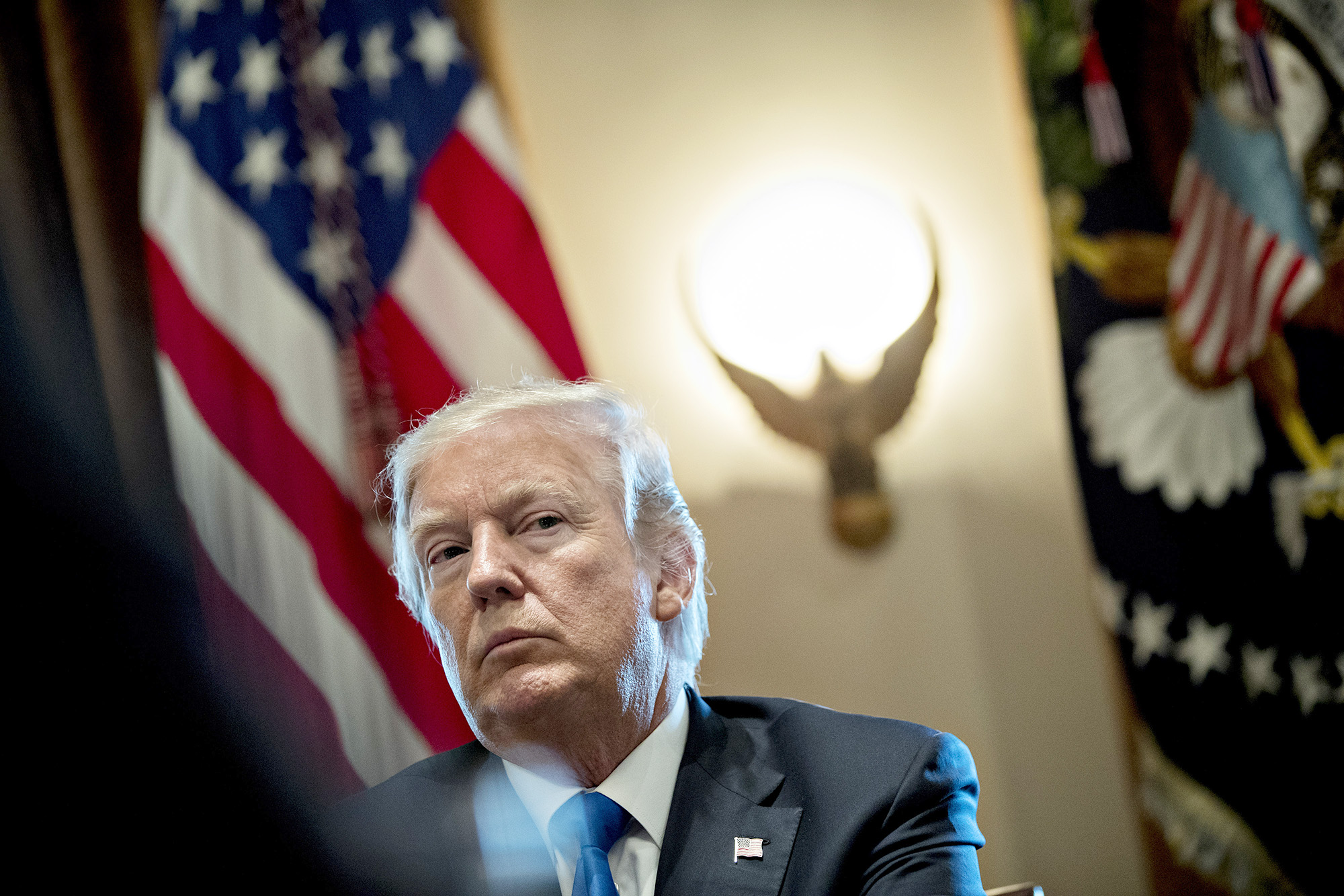Will a GOP senator get through to Trump? Probably not: ANALYSIS
The real protagonists are election officials doing the work of counting votes
Family Zooms to sidewalk chats, it's a buzzy question these days: "Where is Barry Goldwater?"
Concerned history buffs want to know if and when a Republican senator will stand up and tell President Donald Trump to put the country over the party. Will they say out loud what we know is true: that Trump's time is done -- he lost -- and it is time to acknowledge the will of the voters, as has every other president in the history of our democracy? And will that message get through?
The increasingly blunt and glaring answer is no.
On the national stage, that Republican does not seem to exist. Those with the stature to break through to this president seem as interested as he is in perpetuating misleading information and innuendo.
If you're looking in Washington for an elder statesman you're looking in the wrong place. There are plenty of Republicans on the local level doing incredibly hard work that is vital to democracy.

The legendary story around Goldwater is that he was one of the Republicans chosen by his colleagues to deliver the tough news to President Richard Nixon that his party had decided they could no longer back him. Congress was investigating the Watergate scandal and it was likely members of Nixon's own party would vote to impeach him. Nixon took the news and decided to resign instead.
The fact is, unlike Trump, Nixon actually did have more legal options back then. He could have told Goldwater to get out of his office and stood through the trial, shaming his colleagues until the last possible moment. The country could have gone through an impeachment trial as outlined in the Constitution. In the grand scheme of how our government was designed to work, Nixon pushing it further would not have been that weird. There was a process in place, but he decided that bowing out in that moment at least was better for all involved.
Fast forward to today, Trump has already pushed past any similar moment and decided to fight and fight to an illogical end and move the country and government into unchartered territory. His team has tried to launch so many frantic, flailing and desperate lawsuits that courts are basically asking his team to stop wasting their time.
Behind closed doors, some Washington Republicans are whispering that they know the game is up and that the president simply lost, but publicly they are still putting on airs as if it is normal to be widely skeptical of legally cast ballots, when, of course, in America, it is not.

Asked on Tuesday if he thought the president actually won the election, Sen. Lindsey Graham gave an answer that did not include the word "voter."
"When the court cases are over, ask me when the courts have rules," he said. "If the courts reject his claim, then there is no avenue available for him to claim it."
Senate Majority Leader Mitch McConnell has made similar claims, arguing the president should be able to let legal challenges play out.
Of course there are times courts weigh-in to settle disputes or issues, but why would a candidate's claim to victory matter more than votes cast?
Many in Washington are quick to make an argument that those Republicans are nervous -- nervous of a primary challenge, nervous of the president's ire, nervous that the president may not come campaign in Georgia where the party could use his help and popularity to win the last two Senate seats up for grabs in runoff elections still to come. But promoting and fostering general doubt in U.S. elections is reckless regardless and could easily have consequences that outlast their tenures.
Which brings us to the real protagonists this fall, those men and women who are simply making sure votes that were cast legally are counted. Without the strappings and clout that comes with a U.S. Senate office and in the face of unfounded statements from the commander-in-chief himself, several Republicans serving in local office are doing the very hard and important work seeing the democratic process through. We should thank them.
There is arguably nothing more American than letting people vote, making sure those votes are tallied and reporting the results regardless of the winner.
Over and over, they have calmly looked into allegations of fraud and discrepancies, evaluated the charges and evidence as they should, and stood by the results.
Georgia's Republican Secretary of State Brad Raffensperger agreed to a public audit of the presidential election when the president's team pushed. When over 2,000 ballots were found in one county uncounted, he asked the clerk there to resign because of the oversight.
Tuesday afternoon he and his team announced the audit of voting machines was complete and that they found no evidence of the machines being tampered with. The final audit is expected to be wrapped Wednesday.

Facing misinformation and false statements from the president about the state's laws for matching and verifying signatures on absentee ballots, Raffensperger stood his ground and argued back too.
"My team secured and strengthened absentee ballots for the first time since 2005. As Secretary of State the first thing I did was push legislation that -- OUTLAWED --absentee ballot harvesting in Georgia. Next, for the first time in the history of Georgia, absentee ballots submitted through our electronic portal required photo ID. My team -- we made that happen," one of Raffensperger's Facebook posts from Sunday night read.
He continued, "Let's address this disinformation about signature match. We strengthened signature match. We helped train election officials on GBI signature match -- which is confirmed twice before a ballot is ever cast."
Asked about why so few absentee ballots have been rejected over signatures, he explained the work officials did, according to state laws, to contact voters if there was an issue or question with their ballot.
In short, he has stood remarkably resolute and defended the voting processes in his state.
He's not alone.
In Nevada, Republican Secretary of State Barbara Cegavske continued to answer questions about voting laws after Election Day and explain the state's plans for counting ballots in the state.
"I'm just sad -- it saddens me that the integrity of our elections is being thrown around and battered around and that that's harmful, I think. And I think that's, that's part of what we're about. I know that every election, you know has its ups and downs. And that's what I hope will come out of this whoever wins that we all backed that person, and then just move forward," she said in interview days after the election.
Last week Arizona's Republican Attorney General Mark Brnovich said on Fox Business that Biden's projected win in the state would likely stand as the vote count was finalized and certified.
"There is no evidence, there are no facts that would lead anyone to believe that the election results will change," he said and pointed to the fact that at the local level Republicans did well and actually picked up seats.
"If indeed there was some great conspiracy, it apparently didn't work. ... What really happened, it came down to people (who) split their ticket," he added.
Underscoring the need in a democracy to follow election results no matter where they lead, Brnovich added, "There was a time not that long ago, we as Republicans talked about, 'We need to make sure the rule of law means something, we don't want anarchy. We want the rule of law,' and to me the rule of law is all about having consistency in certainty and the application of law, we know what the rules are, those rules stay the same, and they apply to everyone regardless how wealthy you are, or poor, where you come from, or what neighborhood you live in."




